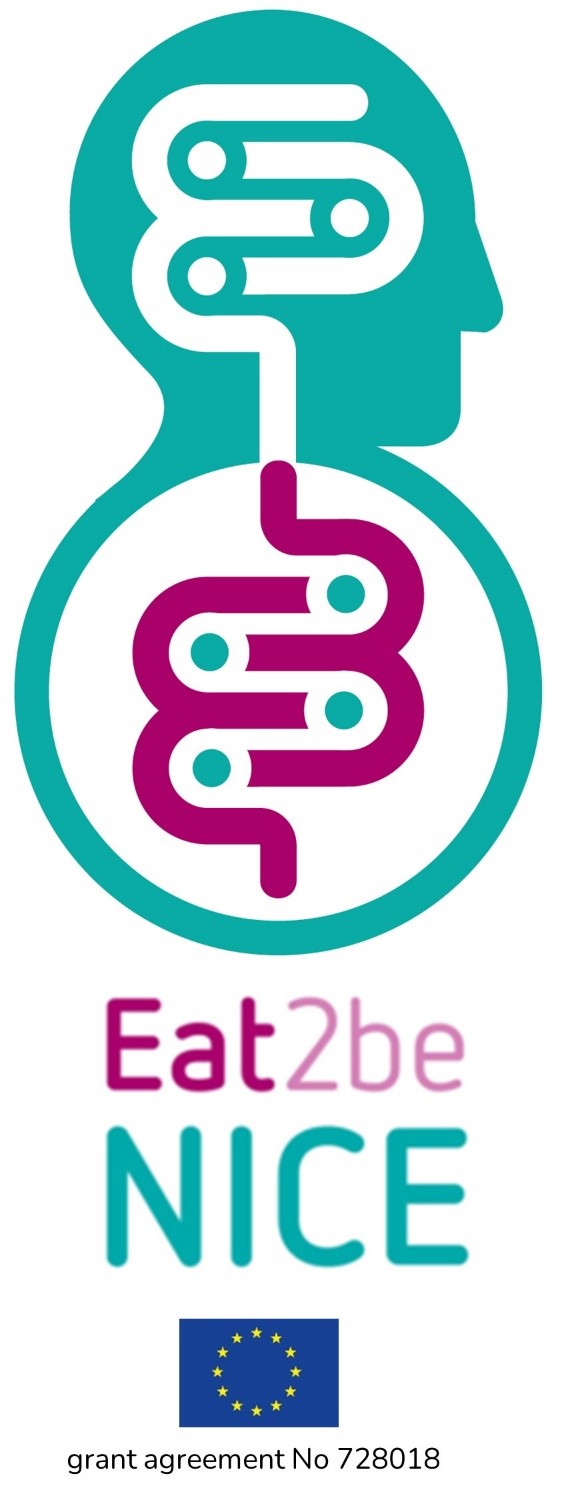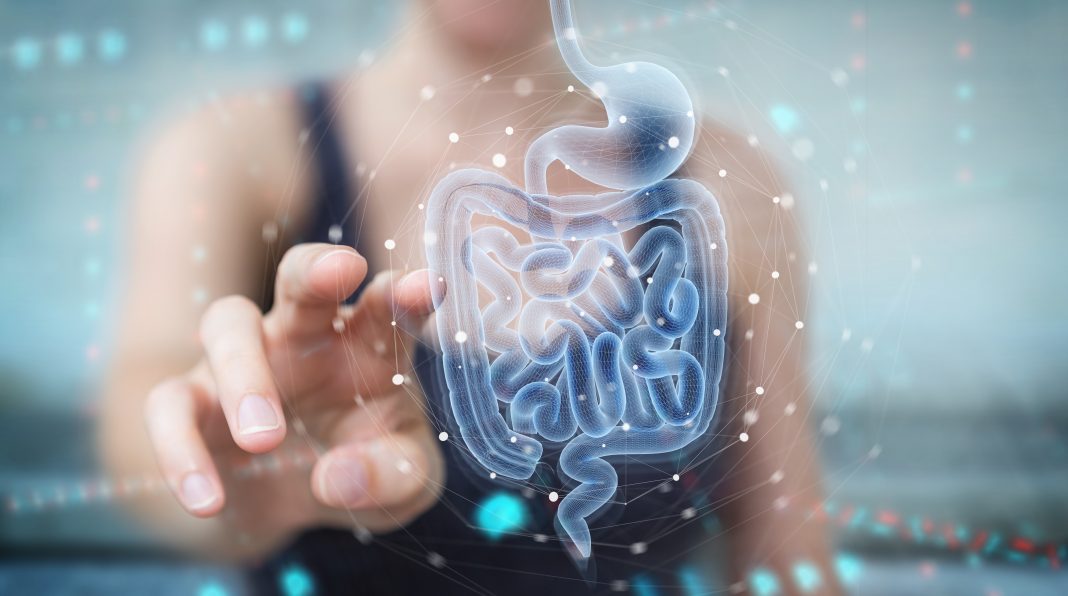Danique Mulder, Mirjam Bloemendaal & Alejandro Arias Vásquez from the departments of Psychiatry & Human Genetics, Radboud University Medical Center, look at gut microbiota and our understanding of its effects on the human brain
Dr. Christof Koch, Chief Scientist and President of the Allen Institute for Brain Science once said: “We don’t even understand the brain of a worm,” when asked how close we were to understanding how the human brain works (1). One thing we have been able to discover is that our brain does not function fractionated or in isolation. A wealth of brain studies tells us, in fact, that multiple and sometimes large areas of the brain are involved in even the most mundane memory tasks and when strong emotions are involved, millions of neurons can become more active and help us modify behaviors. Moreover, the brain is intrinsically linked with other bodily functions, including those taking place in the gastro-intestinal tract (GIt).
The brain and GIt communicate via a bidirectional information super-highway called the gut-brain axis (2) which links the emotional and cognitive centers of the brain with intestinal functions. Basically, the nervous system of the GIt (Enteric Nervous System or ENS) doesn’t seem capable of thought as we know it, but it communicates back and forth with our brain as it may trigger big emotional shifts experienced by people coping with irritable bowel syndrome and functional bowel problems such as constipation, diarrhoea, bloating or pain.
The gut-brain axis and neurological diseases
The gut-brain axis is also a communication system between the brain and the trillions of bacteria (gut microbiota) living within our GIt. Evidence even suggests that gut dysbiosis – a term used to describe disrupted gut microbiota – may be related to many mental and neurological diseases, as our gut bacteria produce a wide range of metabolites which have the ability to modify the gut-brain axis by modulating the production of neurotransmitter precursors, immune response and neural signaling.
Research on the microbiota-gut-brain-axis is growing consistently, and the field is shifting to human studies on behavior, neurodevelopmental and psychiatric disorders, and brain imaging methods. For the latter, brain connectivity provides information on the communication patterns of the brain, thereby giving a sensitive insight into cognitive and emotional processes. Linking such advanced brain measures to the gut microbiota can provide important mechanistic insights into how the gut and brain communicate.
The association between the gut microbiota and brain connectivity
As the body of literature is growing, researchers have the opportunity to evaluate and summarize the available evidence. Such efforts allow us to view the “lay of the land”, providing an overview of what we know (replication of effects increases the likelihood they are “true effects”) and what we don’t. Our research group at the Department of Human Genetics and Psychiatry at the Radboud medical center in Nijmegen has done such systematic evaluations, synthesizing all available findings on the association between gut microbiota and brain connectivity. We identified several bacterial groups that were (more) frequently associated with brain networks involved in emotion (3,4) and executive functioning (5). These bacterial groups, including Bacteroides, Prevotella, Ruminococcus, Blautia and Roseburia, are putatively involved in the production of short-chain fatty acids (SCFAs) (6). Such SCFAs have the potential to affect brain functioning via immune activation. However, at this time, there is still limited evidence for specificity in the microbiota-brain connectivity association, and many of the reported findings are not yet replicated.
Interestingly, the link between the gut microbiota and the brain goes beyond brain connectivity and can help us understand the variability of psychiatric diseases and neurodevelopmental disorders.
Gut microbiota and mental health: The MIND-Set Study Disruption of the microbiota-gut-brain axis can result in changes in cognition, emotion and behavior, which are associated with an increased risk of psychiatric diseases. Researchers have focused on identifying a microbiota ‘signature’ in patients with psychiatric diagnoses, which could eventually be used as a target for treatment strategies. Unfortunately, such efforts have yielded inconsistent findings (7). Hence, a change of strategy seems to be in place, for example by focusing on the association between the gut microbiota and symptom domains, rather than solely on diagnostic categories. This is what we set out to do with data from the MIND-Set cohort (8), a patient-control based study carried out at the Psychiatry Department of the Radboud medical center in Nijmegen.
Based on questionnaire data, patients with either a stress-related disorder, a neurodevelopmental disorder or both, we created four symptom domains including symptoms that co-occur together: 1) negative valence, 2) social processes, 3) cognitive functioning, and 4) regulation of behavior. We found that patients with a higher symptom severity exhibit a lower bacterial diversity, something that typically goes with poorer gut health. Specifically, patients showing more negative emotions have a higher abundance of the pro-inflammatory bacterial group Sellimonas, (linked with depression (9) and patients with difficulties regulating behavior have a higher abundance of Ruminococcus torques liked with GI disorders in children with autism spectrum disorder (10).
Our next step will be to clarify to what extent these associations can be explained by external factors like diet and how we can use this information to influence how the microbiota-gut-brain axis influences our mental well-being.
References
- Tompa. https://alleninstitute.org/what-we-do/brain-science/news-press/articles/5-unsolved-mysteries-about-brain
- Cryan et al. 2019. doi:10.1152/PHYSREV.00018.2018
- Uddin et al. 2017. doi:10.1097/WNP.0000000000000377
- Smith et al. 2017. doi:10.1016/J.NEUROIMAGE.2017.07.044
- Marek et al. 2018. doi:10.3389/fimmu.2019.00277
- Venegas et al. 2019. doi:10.3389/FIMMU.2019.00277/BIBTEX
- Nikolova et al. 2021. doi:10.1001/JAMAPSYCHIATRY.2021.2573
- Eijndhoven et al. 2022. doi:10.2196/31269
- Radjabzadeh et al. 2021. doi:10.21203/rs.3.rs-570388/v1
- Wang et al. 2013. doi:10.1186/2040-2392-4-42


This work is licensed under Creative Commons Attribution-NonCommercial-NoDerivatives 4.0 International.


